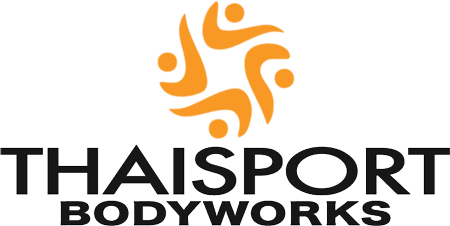Can Massage help fight Covid-19?
With the Covid-19 pandemic, scientists and doctors are looking for any way possible to treat or prevent this illness. So far, with no vaccine and poor therapeutics, getting this virus can be dicey, especially for at-risk people. We do know a few things. For example, if you are exposed to the virus and you have a strong immune system, your body has a fighting chance to rid the virus before the virus can take hold in your body. In fact, many young and healthy people are asymptomatic because their immune systems are in great shape.
But not all of us have the best immune system. Especially if you’re older or have physical issues — thus we need to take advantage of all of the tools out there. Recently, Thai Sport researched if any form of bodywork or massage can help fight viral and bacterial infections - even novel ones like Covid-19. What turned out to be a long shot became an qualified yes! The right massage therapy actually can make a big difference. Here’s How:
The Cedars-sinai Study
Researchers at the Cedars-Sinai’s Department of Psychiatry and Behavioral Neurosciences have reported that if one undergoes a traditional Swedish massage, they will indeed have measurable changes in their body’s immune and endocrine response.
Although there have been previous, smaller studies about the health benefits of massage, the Cedars-Sinai study, completed in 2010, is the first systematic study of a larger group of adults. What is interesting is that they didn’t evaluate other forms of massage such as Thai, Deep Tissue, or Sport, so we cannot qualify these at this time.
What is proven by this study is that soon after this type of massage, your body’s immune system is rapidly fortified with new T-Cells and other immune properties. It also improves circulation in the body and decreases inflammation, relieving the sources of physical stress that can also severely handicap the immune system. Specifically, your body’s begins creating new white blood cells, many are modified into “naive” T-cells that are the front line of defense to any unmarked invaders such as Covid-19.
According to Mark Rapaport, MD, chairman of the Department of Psychiatry and Behavioral Neurosciences, “Massage is popular in America, with almost 9 percent of adults receiving at least one massage within the past year. People often seek out massage as part of a healthy lifestyle but there hasn’t been much physiological proof of the body’s heightened immune response following massage until now.”
This study is published online at Cedars-Sinai website.
Why is This Important?
When your body is invaded (as it often is) by a virus or bacteria, your immune system begins to activate a host of protection. Macrophages and other immune cells, such as dendritic cells or neutrophils, may be deployed to help stop the invaders. Those cells often do the job, and the invader is destroyed. But sometimes, when the body needs more help, it will turn to the T-cells and B-cells, which are the ninjas of your immune system. While B-cells role is to create antibodies that we are all familiar with, it is the T-cell that is another central player in the immune response to viral infection, especially novel viruses.
T-Cells Are Identified As Key Immune Response to Covid-19
The reason for this is that your body doesn’t have any antibodies yet created to fight Covid-19 until after infection.
According to the La Jolla Institute of Immunology, an adequate number of “naive” T-cells are necessary to fight this virus. Their work, published in the Sept. 16, 2020 online issue of Cell, confirms that a multi-layered, virus-specific immune response is important for controlling the virus during the acute phase of the infection and reducing COVID-19 disease severity, with the bulk of the evidence points to a much bigger role for T cells than antibodies.
Naïve T cells are inexperienced T cells that have not met their viral match yet and are waiting to be called up. The problem is that as we age, the immune system’s supply of deployable naïve T cells dwindles and fewer cells are available to be activated to respond to a new virus. “This could either lead to a delayed adaptive immune response that is unable to control a virus until it is too late to limit disease severity or the magnitude of the response is insufficient.
When the SARS-CoV-2 virus, which causes COVID-19, infects epithelial cells, such as those found in your airways, it replicates inside the cells, using the host cell’s biochemical machinery. This causes the host cell to undergo programmed cell death, releasing molecules that produce pro-inflammatory cytokines. This causes macrophages and T-cells to be recruited to the site of infection.
Studies assessing the clinical features of patients infected with SARS-CoV-2 have reported an incubation time of 4 to 7 days before the onset of symptoms, and a further 7 to 10 days before progression to severe disease often caused by cytokine storms if your body is being overwhelmed with viral loads. For many primary virus infections, it typically takes 7 to 10 days to prime and expand adaptive T cell immune responses to control the virus.
In line with what other research teams had found before, antibodies don’t seem to play an important role in controlling acute COVID-19. Instead, T cells and helper T cells in particular are associated with protective immune responses. Controlling a primary infection is not the same as vaccine-induced immunity, where the adaptive immune system is ready to pounce at time zero.
Thus the need for adequate T-cell and B-cell production is absolutely necessary until the party has been vaccinated!
